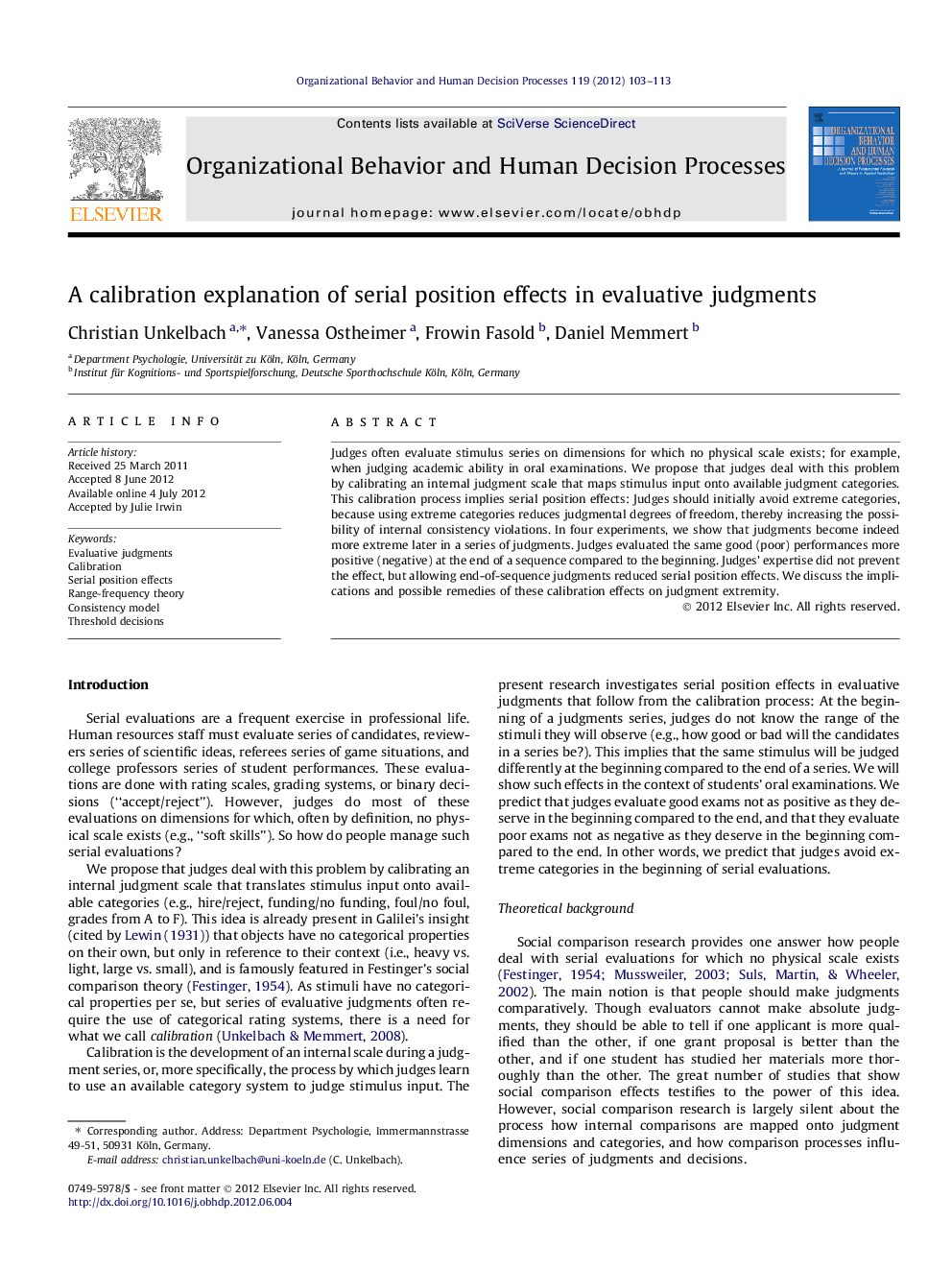| کد مقاله | کد نشریه | سال انتشار | مقاله انگلیسی | نسخه تمام متن |
|---|---|---|---|---|
| 888745 | 913566 | 2012 | 11 صفحه PDF | دانلود رایگان |

Judges often evaluate stimulus series on dimensions for which no physical scale exists; for example, when judging academic ability in oral examinations. We propose that judges deal with this problem by calibrating an internal judgment scale that maps stimulus input onto available judgment categories. This calibration process implies serial position effects: Judges should initially avoid extreme categories, because using extreme categories reduces judgmental degrees of freedom, thereby increasing the possibility of internal consistency violations. In four experiments, we show that judgments become indeed more extreme later in a series of judgments. Judges evaluated the same good (poor) performances more positive (negative) at the end of a sequence compared to the beginning. Judges’ expertise did not prevent the effect, but allowing end-of-sequence judgments reduced serial position effects. We discuss the implications and possible remedies of these calibration effects on judgment extremity.
► We shows serial position effects on judgment extremity in judgment sequences.
► Good/poor performances are evaluate more extremely positive/negative later in judgment sequences.
► Expertise with the area of judgment does not prevent the effects.
► End-of-sequence judgments reduce the effects compared to step-by-step judgments.
► We explain these effects with a necessary calibration process in judgment sequences.
Journal: Organizational Behavior and Human Decision Processes - Volume 119, Issue 1, September 2012, Pages 103–113